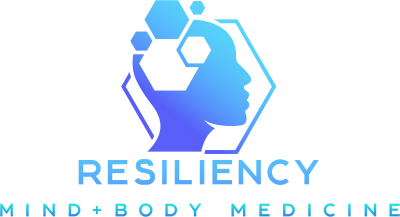In recent years, the emphasis on mental health has gained significant traction. However, the approach to mental health care has traditionally been reactive, focusing on treating symptoms after they manifest.
To create a healthier society, we must shift our focus towards proactive mental health care, prioritizing prevention and early intervention. This article will explore the importance of proactive mental health care, its benefits, and practical steps to implement it effectively.
Understanding Proactive Mental Health Care
Proactive mental health care involves anticipating potential mental health issues and implementing strategies to prevent them. It focuses on maintaining mental well-being through regular check-ins, lifestyle modifications, and preventive measures rather than waiting for symptoms to arise.
The Benefits Of Proactive Mental Health Care
Improved Quality of Life
Proactive mental health care helps individuals maintain a higher quality of life. By addressing mental health concerns early, individuals can avoid the severe impacts of mental illnesses, such as depression or anxiety, allowing them to lead fulfilling lives.
Reduced Health Care Costs
Early intervention can significantly reduce healthcare costs associated with treating chronic mental health conditions. Preventive measures are generally less expensive than the long-term treatment required for more severe mental health issues.
Enhanced Productivity
Mental well-being is closely linked to productivity. Proactive mental health care ensures that individuals perform at their best, whether at work, school, or daily activities. This leads to improved performance and satisfaction.
Strengthened Relationships
Mental health issues often strain personal relationships. Individuals can maintain healthier relationships with family, friends, and colleagues by prioritizing mental well-being.
Strategies For Proactive Mental Health Care
Regular Mental Health Check-ups
Just as regular physical check-ups are essential, so are mental health check-ups. Routine visits to a mental health professional can help identify early signs of mental health issues, allowing for timely intervention.
Promoting Mental Health Education
Educating the public about mental health is crucial. Awareness programs can help individuals recognize early symptoms in themselves and others, reducing the stigma of seeking help.
Encouraging Healthy Lifestyles
Physical health and mental health are interconnected. Encouraging regular exercise, a balanced diet, and adequate sleep can significantly improve mental well-being. These lifestyle choices can act as preventive measures against mental health issues.
Building Support Systems
Strong support systems are vital for mental health. Encouraging individuals to build and maintain healthy relationships with friends, family, and support groups can provide the emotional support needed to navigate life’s challenges.
The Role Of Employers In Proactive Mental Health Care
Employers play a crucial role in promoting mental health. Here are some strategies employers can adopt:
Creating a Supportive Work Environment
A supportive work environment that prioritizes mental well-being can significantly reduce stress and burnout. Employers should foster a culture where employees feel comfortable discussing mental health issues.
Providing Access to Mental Health Resources
Employers can offer access to mental health resources, such as counseling services, mental health days, and workshops on stress management. These resources can help employees manage their mental health proactively.
Implementing Flexible Work Policies
Flexible work policies, such as remote work options and flexible hours, can help employees balance work and personal life, reducing stress and promoting mental well-being.
The Impact Of Technology On Proactive Mental Health Care
Technology has revolutionized the way we approach mental health care. Here are some ways technology can support proactive mental health care:
Telehealth Services
Telehealth services have made mental health care more accessible. Individuals can now access mental health professionals from the comfort of their homes, making it easier to seek help early.
Mental Health Apps
Numerous mental health apps are available that offer resources for managing stress, anxiety, and other mental health issues. These apps provide mindfulness, meditation, and mood-tracking tools, supporting proactive mental health care.
Online Support Groups
Online support groups provide a platform for individuals to share their experiences and seek support from others facing similar challenges. These groups can be a valuable resource for those who may not have access to in-person support.
Frequently Asked Questions (FAQs)
1. What is the difference between proactive and reactive mental health care?
Proactive mental health care focuses on preventing mental health issues before they occur by promoting overall well-being and early intervention. Reactive mental health care, on the other hand, addresses mental health issues after symptoms have already manifested.
2. How often should I have a mental health check-up?
It varies depending on individual needs, but a good rule of thumb is to have a mental health check-up at least once a year, similar to a physical health check-up. More frequent visits may be necessary if you have ongoing mental health concerns or are experiencing significant life changes.
3. Can lifestyle changes really make a difference in mental health?
Yes, lifestyle changes such as regular exercise, a balanced diet, adequate sleep, and stress management techniques have been shown to improve mental well-being and prevent mental health issues significantly.
4. What should I look for in a mental health professional?
When choosing a mental health professional, consider their qualifications, experience, and areas of specialization. Finding someone you feel comfortable with is also important, as a good therapeutic relationship is crucial for effective care.
5. Are mental health apps effective?
Mental health apps can be effective tools for managing mental health. They offer various resources, such as mindfulness exercises, meditation guides, mood tracking, and stress management techniques. However, they should complement, not replace, professional care.
6. How can I support a friend or family member who is struggling with mental health issues?
Offer a listening ear, express your concern, and encourage them to seek professional help. Avoid judgment and provide emotional support. Educate yourself about their condition to better understand what they are going through.
7. What are some early signs of mental health issues?
Early signs can include mood, behavior, or personality changes, withdrawal from social activities, changes in eating or sleeping patterns, and difficulty concentrating. If you notice these signs in yourself or others, it may be beneficial to seek professional advice.
8. Can children benefit from proactive mental health care?
Absolutely. Children can benefit from proactive mental health care through regular check-ups, supportive environments, and early intervention if any issues arise. Teaching children coping skills and resilience early on can help them manage stress and emotions throughout their lives.
9. What role do schools play in proactive mental health care?
Schools can play a significant role by providing mental health education, creating supportive environments, and offering resources such as counseling services. Early identification and intervention in schools can help address issues before they become more serious.
10. How can I incorporate mental health care into my daily routine?
Incorporate practices such as mindfulness, regular physical activity, healthy eating, sufficient sleep, and time for relaxation and hobbies. Building a routine with these elements can help maintain and improve mental well-being.
11. Is there a stigma associated with seeking proactive mental health care?
While the stigma around mental health is decreasing, it can still exist. However, seeking proactive mental health care shows strength and responsibility. Educating others and sharing your experiences can help reduce stigma further.
12. What should I do if I feel overwhelmed but don’t think I have a mental health condition?
Even if you don’t think you have a mental health condition, feeling overwhelmed is a valid reason to seek support. Speaking to a mental health professional can help you develop strategies to manage stress and improve your overall well-being.
Embracing Proactive Mental Health Care
Prioritizing prevention in mental health care is essential for fostering a healthier society. By adopting proactive measures, we can significantly improve quality of life, reduce healthcare costs, enhance productivity, and strengthen relationships. Individuals, employers, and communities must work together to promote proactive mental health care.
At Resiliency Mental Health & Behavioral Medicine, we support your mental well-being through preventive care. Visit our website at Resiliency Mental Health & Behavioral Medicine to learn more about our services and how we can help you maintain a healthy mind and a fulfilling life. Take the first step towards proactive mental health care today.
Prioritize your mental health today by scheduling a check-up with Resiliency Mental Health & Behavioral Medicine. Contact us to learn more about our preventive care services and how we can support your journey to mental well-being.


